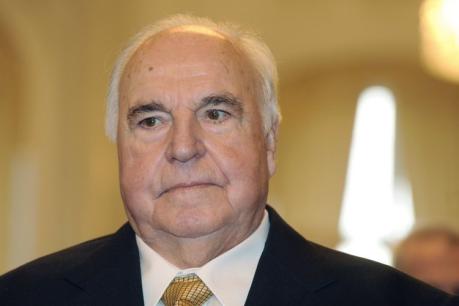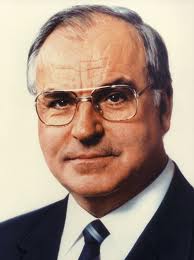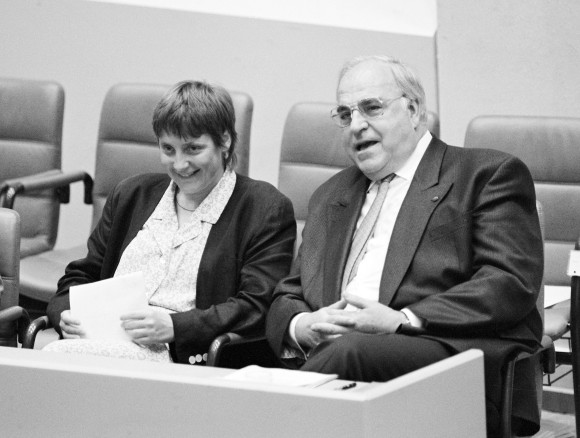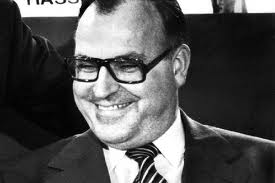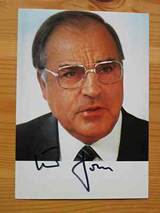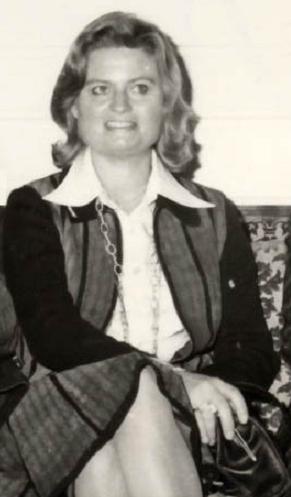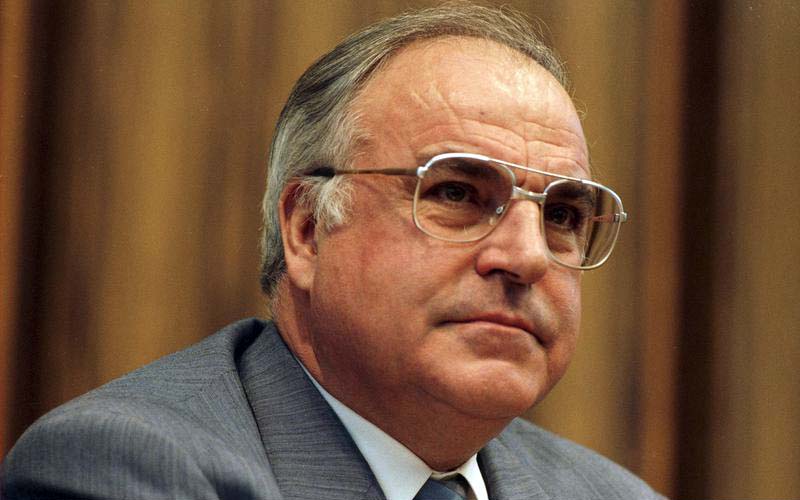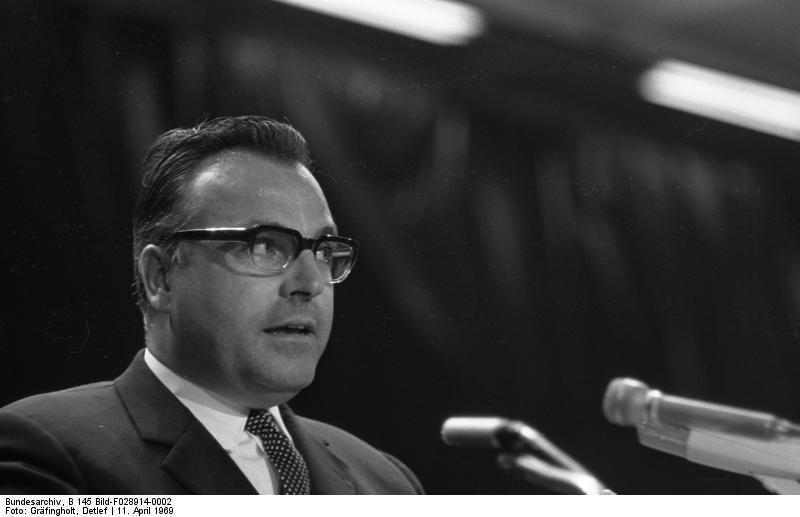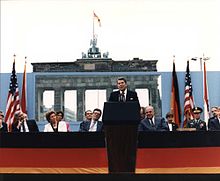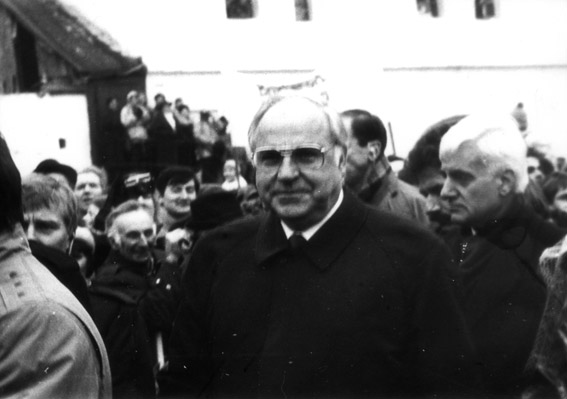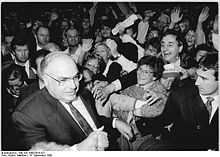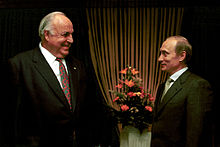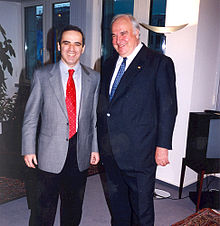|
Wanted Person No: 0810 |
Najar Kidnapping |
Sent-Complain Letters |
Published: 16.01.2012 Updated: 16.01.2012,
13.02.2012 |
|
Information wanted on this person (please send to NajarWantedPersons@Yahoo.com)
|
Name and Aliases |
Helmut Josef
Michael Kohl 1 October 1982 – 27 October 1998 (Added on 12.02.2012) Mistakenly created two
profiles for this person, see the other profile under file name: wanted-377-m.htm, see also below the important comments
next to Adolf Hitler’s photo (Added on 13.02.2012) I Made a lot of additions
due to new discoveries and lost track what when added, however just yesterday
I discovered that Helmut Kohl exchanged places with his father and
that his official two wives I knew from before, it took me a while to comprehend
it all, several hours. Also below I added Helmut
kohl profile from Wikipedia.org to show how it is all falsified
background about his youth. No one can prove to me anything besides what is
mentioned in this profile, period. To
understand this profile, please also look at the following profiles: Men disguises as women, The actual age of God fathers, bodyguards, Gladio,
Adelheid Kuczka alias several persons that used
this identity, my fake uncle Dr. Farzat Baroudi
alias ex-Libyan president Moamar Khadafi, my brother the ex-German
chancellor Helmut Schmidt, the Bush and
Rockefeller families as well as my fake family and in particular my fake mother Hayat Baroudi, my fake brother Mohamed Nashaat Naggar alias Nick Naggar and his fake Turkish
wife Alia Köse alias Anita Naggar alias Condoleezza Rice, my fake sister Fadia Naggar and her official husband Dr. Alaa Ali that exchanged places with the famous
American actor George
Clooney in disguising as the Turkish
president Abdullah Gül, while George Clooney is the famous Syrian, Egyptian, Lebanese singer Fareed
Al-Atrash that pretended to be my friend Raja
at the American military base McGraw kasern in Munich, German and while both Dr.
Alaa Ali and George Clooney exchanged
places as the Turkish president Abdullah Gül they mass murdered Kurdish people in north Iraq
North Syria and north of Iran as preparation for taking over Iraq and Iran while
forcing many Kurdish people to escape and
disguises in Afghanistan and Iran as American
allies=deceive within deceive while making the killing and destruction
brainless machine called the American military
and NATO mass murder people in Afghanistan and Iraq and still look good as an alleged salvation
of the Iraqis after Sadam
Hussein allegedly murdered 10,000 Kurdish
people with mustard gas acquired from USA
through Israel and Jordan=the
terrorist Yasser Arafat and his twin brother king Hussein and my fake sisters Suhair Bdeir and Afrah
Abokurah that were raising his hidden children. Not to forget that the
ex-USA secretary of state (and
security advisor to George W. Bush that
was used to replace me in 1959)
Condoleezza Rice and as she was pretending to
be my sister-in-law Alia Köse in 1970 to
1994 and in this case in 1977 was also pretending to be to be the sister of
the Onassis brothers Fernandels
Onassis and Alexander Onassis that were directly related to the Kennedy family while the first wife of Helmut
Kohl, Hannelore Kohl was a hidden Kennedy that set me up in 1977 in a church seminar
provided to me by the fake Evangelical Lutheran
Genezareth church of the CIA and KGB city Unterschleissheim,
Germany and I called her in these complaint pages as “A CIA
agent-woman alias Jaclyn Kennedy/Onassis” and
my guess that this is why she faked her own death and went in to another
identity, because I am in Europe and can
recognize her/him, because it is a man disguised as Hannelore Kohl that was then replaced by another
man also disguised as a woman and called Maike
Kohl-Richter alias the same man that exchanged places with my ex-wife Anita Disbray and I was used to confirm as if this
mother fucker and queer is a woman, but this is not a woman it is a man that
fucked Helmut Kohl in his ass and mouth=brainwash to make him feel
shame and scared to talk about it and not to talk about exchanging places
with his father the God father of the east Joseph Stalin or the God
father of the west John D. Rockefeller
junior the second that also exchanged places with his brother Joseph Stalin!! (Added on 12.02.2012) this person is identified
as: 1.
The only
problem about Helmut Kohl exchanging places with John D. Rockefeller junior the second is mainly
two problems: 1 he is officially dead since 1960. 2. John D. Rockefeller junior the second as well
as his official father John D. Rockefeller senior
the first were officially based on the Internet and based on my past,
they were around 170 cm or even shorter
and Helmut Kohl is over 190 cm, this can mean several things, there
are two different height persons and very lookalike, Helmut Kohl just
look a lot like his brothers and he became fat to cover it up, or I am wrong
about all these, but I am not wrong that he looks identical to the others
just as the photo shows, and I am not wrong that he is far above average too
fat for an alleged intelligent man, Germany is 100% controlled by the
Rockefeller family, Helmut kohl looks a lot like my fake mother Hayat Baroudi, my grandmother Samiyath Khayat and my grand uncle Fuad Khayat alias John
D. Rockefeller junior the second. On the other side it could be that
there are 2-4 brothers that are absolutely lookalike such as John D. Rockefeller junior the second from USA
and the Middle East, another is Josef Stalin,
and these two both of them officially under 170 cm, and maybe there is an
English version of the two, that I did not meet yet, did not see yet or did
not notice yet. In any case these persons have and with absolute no doubts a
lot of hidden children, possibly several thousand that are helping them to
stay in power for so long, because democracy does not exist anymore that way
I was told about it, the only thing that really exist is how many children
with ESP you have, the more you have the higher you can get and that is the
rule, period. Or John D. Rockefeller junior the second uses
extension wooden legs hidden below his pants and this would be for me the
most plausible explanation and therewith and with his thousands of children
can help his hidden son Helmut kohl that possibly really 190 cm tall or also
uses wooden leg extensions, just like in circus they uses 2 meter leg
extensions that I saw a few months back and just now I see it, but instead of
using 2 meters wooden leg extension, they are merely using 20-30 that are
imbedded in a double shoe, one as long boot that is invisible and the other
visible normal shoes that is covering the long wooden leg extension, which I
saw a few weeks ago a so called Canadian mountain boots that had two shoes in
each other’s, one work as very thick socks for the inside of home and
the other is much bigger that allow that very thick socks or thin shoes to
fit in 2.
(Added on 12.02.2012) Through me writing these
additions to this profile today I understand what happened in the last 2
years or so: in 2008 I was led to discover the photographs of my fake brother
Nick Naggar at his website, which somehow and
almost one year later in 2009 I discovered that the famous TV Moderator and
talk show host Steve Allen was often Mohamad Nashaat Naggar and Nick Naggar, which and most definitely led me to discover
other things related to show business, and they wanted to avoid that and
therewith they stopped me of writing until end of December 2011. Today I and
through this profile I really feel sad because I was may be hoping to go back
to Germany, but it seems to be not possible. I loved Germany because it is
the only home I knew and now may be more than ever due to everyone I knew
betrayed me and officially I have no family, even though I know who is my
family but they are never going to admit it and I will never going to deny
it. The funny thing I never published the photos of Steve Allen within the
profile of my fake brother Mohamad Nashaat Naggar
alias Nick Naggar alias Steve Allen that could lead me to George Clooney and to my fake brother-in-law Dr. Alaa Ali whereby both exchange places under
the identity of the Turkish president Abdullah
Gül, but I will do it today 3.
(Added on 12.02.2012) today and based on this
discovery and many other discoveries, I came to the conclusion that my father
John D. Rockefeller junior the second exchanged
places with the ex-Soviet Union leader Joseph
Stalin that possibly is his hidden brother and simultaneously is the father of George W. Bush, and therewith George W. Bush is my cousin 4.
(Added on 12.02.2012) is identified as one of my
half-brothers from John D. Rockefeller junior
the second but
from a different father, and this is based on the 5.
(Added on 12.02.2012) is identified as one of the
persons that exchanged places with my fake brother Mohamad Nashaat Naggar at
the concentrated evil American military base McGraw kasern in Munich, Germany
in 1982 and in Cairo, Egypt between 1965/1966 and 1968 6.
(Added on 12.02.2012) A hidden
brother to the fake Palestinian Saeb Muhammad Salih Erekat the
supporter and of the international terrorist Yasser
Arafat alias a hidden twin brother of King
Hussein that officially married to Queen Noor
that exchanged places with Maike
Richter, Margie Lange (alias Laura Welch Bush) and Sheikha Mozah in the identity that pretended to
be my ex-girlfriend Adelheid Kuczka, whereby Maike Richter is also a hidden daughter of Birgit
Wiedemann the hidden sister of George H. W. Bush and very lookalike
of their joint mother Dorothy Walker Bush, while Birgit Wiedemann was guarding Karin Kittlaus alias Marilyn Tucker Quayle the wife of ex-USA vice president Dan Quale while George
H. W. Bush was a president. And all of them were surrounding me in the CIA and KGB city
Unterschleissheim, Germany 7.
(Added on 12.02.2012) A hidden
brother to Nelson Aldrich Rockefeller alias Wolfgang Clements 8.
(Added on 12.02.2012) A hidden brother to George H. W. Bush and to George W. Bush |
||||
|
Name in Arabic |
|||||
|
Relation to me |
|||||
|
First saw/met |
|||||
|
Age at that time |
|||||
|
Last saw/met |
|||||
|
Hidden biological relatives |
|||||
|
Allegedly Died On |
|||||
|
Surrounding me during |
|||||
|
Height |
Weight |
Skin Color |
|||
|
Hair Color |
Eye Color |
Religion |
|||
|
Special Features |
|||||
|
Special Crimes Against Me |
|||||
See more description/Details below the photograph
|
Additional
photo needed
|
|
|
Photo-A01: Helmut Kohl from the CD
political party (=win-win
situation) exchanging places with his very lookalike father John D. Rockefeller junior the second Photo-A02: : Helmut Kohl exchanging
places with his very lookalike father John D. Rockefeller
junior the second Photo-A03: the actual Helmut Kohl
that exchanged places as my fake brother Mohamad
Nashaat Naggar before 1982 between Egypt, Jordan, and Germany Photo-A04: the actual Helmut Kohl Photo-A05: John D. Rockefeller junior the second disguised
as Helmut Kohl with the current German chancellor Angela/Angelika Merkel alias Yvonne O’Conner from the American military base McGraw Kasern. Today I have absolute no more
doubt that Angela/Angelika Merkel is a man disguised as a woman and used me to show as
if he is the woman Yvonne O’Conner from
1970. It is Yvonne O’Conner, but Yvonne
O’Conner was a man disguised as a little girl of 15/16 years old
and therewith the Afro-American sergeant with his adult kid that terrorized my life was possibly
pretending to give me a hint about Yvonne
O’Conner and not only about the Middle East,
and this I understood only now after almost 42 years of severe suffering. No
doubt the Rockefeller family are 100% the family of Adolf Hitler and are the current Neo Nazis and
are the ones who are 100% manipulating so much media to keep the German
people enslaved under the pretension of that they are Nazis, but who can
create such beautiful products as they do in Germany, they can’t be
Nazi they are 100% enslaved with mass brainwash through TV, Radio, Internet,
Newspapers, Magazine, Books, etc. that I see myself on a daily basis and as a
result I don’t want to hear it anymore and switch to the understandable
Dutch local Radio due to they speak in local dialect= the power of brainwash
under organized crime family=Rockefellers and
their allies Photo-A06: the actual Helmut Kohl Photo-A07: the actual Helmut Kohl Photo-A07: the actual Helmut Kohl |
Photo-B01: Ex-German chancellor Helmut Schmidt from the opposite political party
SPD (=win-win
situation) exchanging place with his very lookalike father John D. Rockefeller junior the second, in other
words ad in this photo it is John D. Rockefeller
junior the second and not Helmut Schmidt Photo-B02: Mary Elizabeth Tennant
of the Rockefeller Foundation that exchanged places with John D. Rockefeller junior the second and looks
identical to my fake grandmother Samiyath Khayat
alias John D. Rockefeller junior the second,
but also exchanged places with my second fake mother Hayat
Baroudi and with my fake sister Fadia Nagar Photo-B03: John D. Rockefeller junior the second some
times in 1940s Photo-B04: My fake Mother Hayat Baroudi Photo-B05: Teresa Heinz Kerry Photo-B06: Helmut Kohl with
his queer son that is disguised as a woman his wife Maike Kohl-Richter (see men disguised as women for more info), name
unknown that used to sometimes disguises as my ex-wife the CIA agent whore Anita
Disbray that used to exchange places with several others among others
this piece of shit that raped me on 24 August 1970 in the concentrated evil American military base McGraw kasern and they used the English famous
singer Leo Sayer that was most probably also a CIA or MI5 agent as cover up for this piece of
shit Photo-B07: Hannelore Kohl the first wife of Helmut Kohl
alias a man disguised as a woman and set me up in cooperation with the above Maike Kohl-Richter, my fake cousin Dr. Basam Baroudi alias Newt
Gingrich that most probably exchanged places with Jürgen Möllemann, John D. Rockefeller junior the second alias a very
lookalike to his brother Adolf Hitler alias Basheer Queder. For more information about this
setup see the Evangelical Lutheran Educational Center
in Hohenbrunn, Germany and Hannelore Kohl
disguised as Jaclyn Kennedy=a man disguised
as a woman. And to understand the deceive of men disguised as a woman see the
profiles: Men disguised as women and God-Father actual age Photo-B08: Maike Kohl-Richter alias sometimes Anita Disbray with his father the ex-German
Chancellor Helmut Kohl while pretending to be his wife and make ever one
feel sorry for him as a mean of mass brainwash . Notice how Helmut Kohl
can control his eyes to go different directions faking being too old, while
sitting on a wheel chair faking a sickness but in reality he can’t walk
properly due to he has a hidden 25 cm shoe heels and making everyone feel
sorry for him while really he is a very cheap mentally sick con man that has
been doing that for so l9ong and don’t know when to stop=God-Father Photo-B09: Every one and immediately
around him is 100% his son and forcing everyone to clap for him while he
pretend to be a good man that sacrificed himself for Germany, in reality he
is killing Germany and killing the democracy. This is just like a very cheap
and second class talk show where they have a sign that lights up and tell everyone
to clap, and in this photo it is absolutely the same, except the light is
these mother fuckers criminals and idiots blinded by money and surrounding him
and clap to force every one out of shame or fear to also clap. The only thing
I will do for this guy is piss/urinate on his stupid mother fucking criminal
mass murderer face |
Other Descriptions/Details
|
Name and Aliases |
||
|
Profession under Alias |
||
|
Official Nationality |
||
|
Countries Lived In |
||
|
Official Address |
||
|
Disguise Methods |
||
|
Official Family Members |
Father |
|
|
Mother |
||
|
Sisters |
||
|
Brothers |
||
|
Cousins |
||
|
Wife |
||
|
Children |
||
|
Other
Relatives |
||
|
Biological Family Members |
Father |
|
|
Mother |
||
|
Sisters |
||
|
Brothers |
||
|
Cousins |
||
|
Wife |
||
|
Children |
||
|
Other
Relatives |
||
|
Friends of the Family |
||
|
Official Businesses |
||
|
Businesses Partners: |
||
|
Illegal Businesses |
||
|
Other Knowledge |
Will follow |
|
|
This is a copy profile from: http://en.wikipedia.org/wiki/Helmut_Kohl
|
|||||||||||||||||||||||||||||||||||||||||||||||||||||||||||||||||||||||||||||||||||||||||||||||||||||||||||||||||||||||||||
|
From Wikipedia, the free encyclopedia Jump to: navigation, search This
article is about the German politician. For the referee, see Helmut Kohl (referee).
Helmut Josef Michael Kohl (German pronunciation: [ˈhɛlmuːt ˈkoːl];
born 3 April 1930) is a German conservative politician and statesman. He was Chancellor of
Germany from 1982 to 1998 (of West Germany between 1982 and 1990 and of
the reunited Germany between 1990 and 1998) and the chairman of the Christian Democratic Union
(CDU) from 1973 to 1998. His 16-year tenure was the longest of any German
chancellor since Otto von Bismarck and oversaw the end of the Cold War
and the German reunification. Kohl is widely
regarded as one of the main architects of the German reunification and,
together with French President François Mitterrand, the Maastricht Treaty, which contributed to the
creation of the European Union.[1] Kohl and Mitterrand were the joint recipients of the Karlspreis
in 1988.[2]
In 1998, Kohl was named Honorary Citizen of Europe by the European
heads of state or government for his extraordinary work for European
integration and cooperation, an honour previously only bestowed on Jean
Monnet.[3]
In 1996, he won the prestigious Prince of Asturias Award in
International Cooperation.[4] Kohl has been described as "the greatest European leader of the
second half of the 20th century" by former U.S. Presidents George H. W. Bush[5] and
Bill
Clinton.[6] [edit] Life [edit] Youth Kohl was born in Ludwigshafen am Rhein (at the time part of Bavaria, now in
Rhineland-Palatinate) Germany,
the third child of Cäcilie (née Schnur; 1890–1979)
and her husband Hans Kohl (1887–1975), a civil servant. His family was
conservative and Roman Catholic, and remained loyal to the Catholic Centre Party before and after
1933. His older brother died in the Second
World War as a teenage soldier. In the last weeks of the war, Kohl was
also drafted, but he was not involved in any combat. Kohl attended the Ruprecht elementary school, and continued at the
Max-Planck-Gymnasium. In 1946, he joined the recently founded CDU. In 1947, he was one of
the co-founders of the Junge Union-branch in Ludwigshafen. After graduating
in 1950, he began to study law in Frankfurt am Main. In 1951, he switched to the University of Heidelberg where he
majored in History
and Political Science. In 1953, he joined the board
of the Rhineland-Palatinate branch of the CDU. In
1954, he became vice-chair of the Junge Union in Rhineland-Palatinate. In 1955, he returned to the
board of the Rhineland-Palatinate branch of the CDU. [edit] Life before politics After graduating in 1956 he became fellow at the
Alfred Weber Institute of the University of Heidelberg where he was an
active member of the student society AIESEC. In 1958,
he received his doctorate degree for his thesis "The
Political Developments in the Palatinate and the Reconstruction of Political
Parties after 1945". After that, he entered business, first as an
assistant to the director of a foundry in Ludwigshafen and, in 1959, as a
manager for the Industrial Union for Chemistry in Ludwigshafen. In this year,
he also became chair of the Ludwigshafen branch of the CDU. In the following
year, he married Hannelore Renner, whom he had known since 1948,
and they had two sons. [edit] Early political career In 1960, he was elected into the municipal council of Ludwigshafen where
he served as leader of the CDU party until 1969. In 1963, he was also elected
into the Landtag of Rhineland-Palatinate and served as leader of
the CDU party in that legislature. From 1966 until 1973, he served as the
chair of the CDU, and he was also a member of the Federal CDU board. After
his election as party-chair, he was named as the successor to Peter Altmeier,
who was minister-president of Rhineland-Palatinate at the time. However,
after the Landtag-election which followed, Altmeier remained
minister-president. [edit]
Minister-President of Rhineland-Palatinate
Helmut Kohl, 1969 On 19 May 1969, Kohl was elected minister-president of Rhineland-Palatinate, as the successor to Peter
Altmeier. During his term as minister-president, Kohl founded the University of Trier-Kaiserslautern
and enacted territorial reform. Also in 1969, Kohl became the vice-chair of
the federal CDU party. In 1971, he was a candidate to become chairman of the federal CDU, but
was not elected. Rainer Barzel remained in the position instead. In 1972,
Barzel attempted to force a cabinet crisis in the SPD/FDP government, which failed, leading
him to step down. In 1973, Kohl succeeded him as federal chairman; he
retained this position until 1998. [edit] The 1976
Bundestag election In the 1976 federal election, Kohl was the
CDU/CSU's candidate for chancellor. The CDU/CSU coalition performed very
well, winning 48.6% of the vote. However they were kept out of government by
the centre-left cabinet formed by the Social Democratic Party of Germany
and Free Democratic Party (Germany),
led by Social Democrat Helmut Schmidt. Kohl then retired as
minister-president of Rhineland-Palatinate to become the leader of the
CDU/CSU in the Bundestag. He was succeeded by Bernhard Vogel. [edit] Leader of the
opposition In the 1980 federal elections, Kohl had to
play second fiddle, when CSU-leader Franz Josef Strauß became the
CDU/CSU's candidate for chancellor. Strauß was also unable to defeat
the SPD/FDP alliance. Unlike Kohl, Strauß did not want to continue as
the leader of the CDU/CSU and remained Minister-President of Bavaria. Kohl
remained as leader of the opposition, under the third Schmidt cabinet
(1980–82). On 17 September 1982, a conflict of economic policy occurred between the
governing SPD/FDP coalition partners. The FDP wanted to radically liberalise
the labour market, while the SPD preferred to guarantee the employment of
those who already had jobs. The FDP began talks with the CDU/CSU to form a
new government. [edit] Chancellor of West
Germany [edit] Rise to power On 1 October 1982, the CDU proposed a constructive vote of no confidence
which was supported by the FDP. The motion carried, and, on 4 October, the
Bundestag voted in a new CDU/CSU-FDP coalition cabinet, with Kohl as
the chancellor. Many of the important details of the new coalition had been
hammered out on 20 September, though minor details were reportedly still
being hammered out as the vote took place. Though Kohl's election was done according to the Basic Law, some
voices criticized the move as the FDP had fought its 1980 campaign on the
side of the SPD and even placed Chancellor Schmidt on some of their campaign
posters. Some voices went as far as denying that the new government had the
support of a majority of the people. To answer this question, the new
government aimed at new elections at the earliest possible date. Since the Basic Law is restrictive on the dissolution of parliament, Kohl
had to take another controversial move: he called for a confidence vote only
a month after being sworn in, in which members of his coalition abstained.
The ostensibly negative result for Kohl then allowed President Karl
Carstens to dissolve the Bundestag in January 1983. The move was controversial as the coalition parties denied their votes to
the same man they had elected Chancellor a month before and whom they wanted
to re-elect after the parliamentary election. However, this step was condoned
by the German Federal Constitutional Court
as a legal instrument and was again applied (by SPD Chancellor Gerhard Schröder and his Green allies) in 2005. [edit] The second cabinet In the federal elections of March 1983,
Kohl won a smashing victory. The CDU/CSU won 48.8%, while the FDP won 7.0%.
Some opposition members of the Bundestag asked the Federal constitutional court
to declare the whole proceedings unconstitutional. It denied their claim. The second Kohl cabinet pushed through several
controversial plans, including the stationing of NATO midrange
missiles, against major opposition from the peace movement. On 24 January 1984, Kohl spoke before the Israeli Knesset, as the
first Chancellor of the post-war generation. In his speech, he used
Günter Gaus' famous sentence, that he had "the mercy of a late
birth". On 22 September 1984 Kohl met the French president François Mitterrand at Verdun, where the
Battle of Verdun between France and Germany had
taken place during World War I. Together, they
commemorated the deaths of both World Wars. The photograph, which depicted
their minutes long handshake became an important
symbol of French-German reconciliation. Kohl and Mitterrand developed a close
political relationship, forming an important motor for European integration. Together, they laid
the foundations for European projects, like Eurocorps
and Arte. This
French-German cooperation also was vital for important European projects,
like the Treaty of Maastricht and the Euro. In 1985, Kohl and US President Ronald
Reagan, as part of a plan to observe the 40th anniversary of V-E Day, saw
an opportunity to demonstrate the strength of the friendship that existed
between Germany and its former foe. During a November 1984 visit to the White
House, Kohl appealed to Reagan to join him in symbolizing the reconciliation
of their two countries at a German military cemetery. As Reagan visited
Germany as part of the G6
conference in Bonn,
the pair visited Bergen-Belsen concentration camp on 5 May, and more
controversially the German military cemetery in Bitburg,
discovered to hold 49 members of the Waffen-SS
buried there. In 1986, more controversy was caused by an essay published in the Frankfurter Allgemeine Zeitung
on 25 April 1986 entitled "Land Without A History" written by one
of Kohl's advisors, the historian Michael Stürmer, in which Stürmer
argued that West Germany lacked a history to be proud of, and called for
effort on the part of the government, historians and the media to build
national pride in German history. Though Stürmer insisted that he was
writing on behalf of himself and not in an official capacity as the
Chancellor's advisor, many left-wing intellectuals claimed that
Stürmer's essay also expressed Kohl's views. [edit] The third cabinet Chancellor Kohl behind and to the right of U.S.
President Ronald Reagan (center) at the Brandenburg
Gate. President Reagan, challenging Gorbachev to "tear down this wall!" in 1987 After the federal elections of 1987 Kohl won
a slightly reduced majority and formed his third
cabinet. The SPD's candidate for chancellor was the Minister-President of
North Rhine-Westphalia, Johannes
Rau. In 1987, Kohl received East German leader Erich
Honecker - the first ever visit by an East German head of state to West
Germany. This is generally seen as a sign that Kohl pursued Ostpolitik,
a policy of détente between East and West that had been
begun by the SPD-led governments (and strongly opposed by Kohl's own CDU)
during the 1970s. Following the breach of the Berlin
Wall in 1989, Kohl's handling of the East German issue would become the
turning point of his chancellorship. [edit] The road to
reunification Main
article: German reunification
Helmut Kohl in Krzyżowa (Kreisau),
Poland, 1989. Taking advantage of the historic political changes occurring in East
Germany, Kohl presented a ten point plan for "Overcoming of the division
of Germany and Europe" without consulting his coalition partner, the
FDP, or the Western Allies. In February 1990, he visited the Soviet Union
seeking a guarantee from Soviet leader Mikhail Gorbachev that the USSR would allow
German reunification to proceed. On 18 May 1990, he signed
an economic and social union treaty with East Germany. Against the will of
the president of the German federal bank, he
allowed a 1:1 exchange rate for wages, interest and rent between the West
and East Marks. In the end, this policy would
seriously hurt companies in the new federal states. Together with Foreign
Minister Hans-Dietrich Genscher, Kohl was able to
resolve talks with the former Allies of World War II to allow German reunification and the expansion of
the NATO into the former East German state. On 3 October 1990, the East
German state was abolished and its territory reunified with West Germany.
After the fall of the Berlin Wall, Kohl confirmed that historically German territories east
of the Oder-Neisse line were definitively part of the Republic of Poland, thereby finally ending the
West German territorial claims. In 1993, Kohl confirmed, in a treaty with the
Czech Republic, that Germany would no longer bring forward territorial claims
as to the pre-1945 ethnic German so-called Sudetenland.
This was a disappointment for the German Heimatvertriebene, displaced persons. [edit] Chancellor of
reunified Germany Helmut Kohl in 1990. Reunification placed Kohl in a momentarily unassailable position. In the 1990 elections – the first
free, fair and democratic all-German elections since the Weimar
Republic era – Kohl won by a landslide over opposition candidate
and Minister-President of Saarland, Oskar
Lafontaine. He then formed his fourth
cabinet. After the federal elections of 1994 Kohl was
narrowly re-elected. He defeated the Minister-President of
Rhineland-Palatinate Rudolf Scharping. The SPD was however able to
win a majority in the Bundesrat, which significantly limited
Kohl's power. In foreign politics, Kohl was more successful, for instance
getting Frankfurt am Main as the seat for the European Central Bank. In 1997, Kohl
received the Vision for Europe Award for his efforts
in the unification of Europe. By the late 1990s, the aura surrounding Kohl had largely worn off amid
rising unemployment. He was heavily defeated in the 1998 federal elections by the
Minister-President of Lower Saxony, Gerhard Schröder. [edit] Retirement and
legal troubles A red-green coalition government led by
Schröder replaced Kohl's government on 27 October 1998. He immediately
resigned as CDU leader and largely retired from politics. However, he
remained a member of the Bundestag until he decided not to run for reelection
in the 2002 election. [edit] CDU finance affair
Kohl's life after political office in the beginning was dominated by the CDU-party finance scandal. The party financing scandal became public in 1999, when it was discovered
that the CDU had received and kept illegal donations during Kohl's
leadership.[7] Investigations by the Bundestag into the sources of illegal CDU funds,
mainly stored in Geneva bank accounts, revealed two sources. One was the sale
of German tanks to Saudi Arabia (kickback question), while the other
was the privatization fraud in collusion with the late French President François Mitterrand who wanted
2,550 unused allotments in the former East Germany for the then French owned Elf
Aquitaine. In December 1994 the CDU majority in the Bundestag enacted a
law that nullified all rights of the current owners. Over 300 million DM in
illegal funds were discovered in accounts in the canton
of Geneva. The fraudulently acquired allotments were then privatized as
part of Elf Aquitaine and ended up with TotalFinaElf, now Total S.A.,
after amalgamation.[citation needed] Kohl himself claimed that Elf Aquitaine had offered (and meanwhile made)
a massive investment in East Germany's chemical industry together with the
takeover of 2,000 gas stations in Germany which were formerly owned by
national oil company Minol. Elf Aquitaine is supposed to have financed CDU
illegally, as ordered by Mitterrand, as it was usual practice in African
countries.[citation needed] Kohl and other German and French politicians defended themselves that
they were promoting reconciliation and cooperation between France and Germany
for the sake of European integration and peace, and that they had no personal
motives for accepting foreign party funding.[citation needed] These scandal matters are still under investigation. The German-Canadian
businessman Karlheinz Schreiber, a longtime associate of
Kohl's late CSU political rival Franz Josef Strauß, is wanted by
Bavarian prosecutors on charges of fraud and corruption, but Schreiber has been
fighting extradition from Canada to Germany for more than eight
years, since the summer of 1999. Schreiber who is freed on bail in Canada as
of April, 2008, filed an affidavit implicating former Canadian Prime Minister
Brian
Mulroney, another business associate of his. The Canadian Prime Minister Stephen
Harper called on 13 November 2007, for a public inquiry to probe Schreiber's
statements.[citation needed][relevant?
– discuss] [edit] Life after politics
Kohl and Vladimir
Putin in 2000 Kohl and Garry
Kasparov In 2002, Kohl left the Bundestag and officially retired from politics. In
recent years, Kohl has been largely rehabilitated by his party again. After
taking office, Angela Merkel invited her former patron to the
Chancellor's Office and Ronald Pofalla, the Secretary-General of the CDU,
announced that the CDU will cooperate more closely with Kohl, "to take
advantage of the experience of this great statesman", as Pofalla put it.
However, Kohl has retreated from public life to a far greater extent than his
predecessor Helmut Schmidt. On 5 July 2001, Hannelore Kohl, his wife, committed suicide, after
suffering from photodermatitis for years. On 4 March 2004, he
published the first of his memoirs, called "Memories
1930–1982", covering the period 1930 to 1982, when he became
chancellor. The second part, published on 3 November 2005, included the first
half of his chancellorship (from 1982 to 1990). On 28 December 2004, Kohl was
air-lifted by the Sri Lankan Air Force, after having been stranded in a
hotel by the 2004 Indian Ocean earthquake. He is a member of the Club
of Madrid.[8] As reported in the German press, he also gave his name to the soon-to-be
launched Helmut Kohl Centre for European Studies
(currently 'Centre for European Studies'), which is the new political
foundation of the European People's Party. In April 2008, Kohl was reported to be in intensive care due to a falling
accident earlier in the year, and incapable of speaking. Subsequent to his
recovery, he married his 43-year-old partner, Maike Richter, on 8 May 2008. In 2010, he had a gall bladder operation in Heidelberg. [9] [edit] Political views In international politics Kohl was committed to European integration, maintaining close
relations with the French president Mitterrand. Parallel to this he was
committed to German reunification. Although he continued
the Ostpolitik
of his social-democratic predecessor, Kohl also supported Reagan's more
aggressive policies in order to weaken the USSR. [edit] Public perception Kohl faced stiff opposition from the West German political left and was
as well mocked upon for his provincial background, physical stature and
simple language. Similar to historical French cartoons of Louis-Philippe of France, Hans
Traxler depicted Kohl as a pear in the left leaning
satirical journal Titanic.[10]
The German expression Birne ("pear") became a
widespread nickname and symbol for the Chancellor.[11]
Kohl became one of the most popular politicians in some regions of Eastern Germany
and a greatly respected European statesman.[citation needed] [edit] Honors ·
In
1988, Kohl and Mitterrand received the Karlspreis
for his contribution to Franco-German friendship and European Union.[2] ·
In
1996, Kohl received the Prince of Asturias Award in
International Cooperation ·
In
1996, he was made honorary doctor of the Catholic University of Louvain. ·
In
1996, Kohl received an award for his humanitarian achievements from the
Jewish organisation B'nai B'rith. ·
In
1996, Kohl received a Doctor of Humanities, Honoris
Causa from the Ateneo de Manila University in the Philippines,
a Jesuit run
institution. ·
On 11
December 1998, the European Council awarded him the title Honorary Citizen of Europe, a title
which only Jean Monnet had received before.[3][12] ·
In
1998, he received an honorary doctor of laws degree from Brandeis University in Massachusetts.[13] ·
In
1998, he was only the second person to be awarded the Grand Cross in Special Design of the Order of
Merit of the Federal Republic of Germany, the other being Konrad
Adenauer.[14] ·
In
1999, Kohl received Presidential Medal of Freedom from
U.S. President Clinton. ·
Kohl
is honorary citizen of both Frankfurt am Main and Berlin. On 2 September
2005, he was made an honorary citizen of his home town, Ludwigshafen. ·
In
2007, he received the Gold Medal of the Jean Monnet Foundation for Europe
for his contribution to the unity of Europe. ·
On May
16, 2011, Kohl received the Henry A. Kissinger Prize at the American Academy in Berlin for his
"singularly extraordinary role in German reunification and laying the
foundation for a lasting democratic peace in the new millennium".[15] [edit] See also [edit] References 1.
^ Chambers, Mortimer. The Western Experience. 2.
^ a
b
"Der
Karlspreisträger 1988" (in German). Stiftung Internationaler
Karlspreis zu Aachen. http://www.karlspreis.de/index.php?id=12&doc=30.
Retrieved 2008-03-01.[dead link] 3.
^ a
b
"European
leaders honour Kohl". BBC NEWS. 1998-12-11. http://news.bbc.co.uk/1/hi/world/europe/233191.stm. 4.
^ Helmut
Kohl 5.
^ Time, Helmut
Kohl, by George H. W. Bush 6.
^ M&C
news, "Clinton praises Germany's Kohl at Berlin Award", by Deutsche
Presse Agentur 7.
^ Gerd Langguth, "The
scandal that helped Merkel become chancellor", Spiegel Online International, 8 July 2009 8.
^ "Helmut
Kohl". Club of Madrid. Archived from the original on
2007-10-14. http://web.archive.org/web/20071014222641/http://www.clubmadrid.org/cmadrid/index.php?id=161.
Retrieved 2008-03-01. 9.
^ Bunte: http://www.bunte.de/newsline/helmut-kohl-altkanzler-uebersteht-operation-gut_aid_14807.html 10. ^ Hans
Traxler wird 80, Der Erfinder der "Birne" (Hans Traxler 80, the
inventor of the pear) Taz 20.05.2009 11. ^ Birne auf
Breitwand, Dreharbeiten zu "Helmut Kohl - Der Film" (The pear
in Cinemascope - Shooting of Helmut Kohl - the film) Sueddeutsche Zeitung
05.10.2008, 15:40 12. ^ "Vienna
European Council, 11 and 12 December 1998, Presidency Conclusions".
European Council. http://www.consilium.europa.eu/uedocs/cms_data/docs/pressdata/en/ec/00300-R1.EN8.htm.
Retrieved 2010-02-11. 13. ^ Williams, Jennifer (1998-08-31). "Kohl's
honorary degree 'an affirmation of healing'" (PDF).
BrandeisReporter. http://www.brandeis.edu/offices/communications/reporter/15-9.pdf. 14. ^ "Bundesverdienstkreuz
mit Lorbeerkranz für Kohl" (in German). Rhein-Zeitung.
1998-10-26. http://rhein-zeitung.de/on/98/10/26/topnews/kohl.html. 15. ^ "Bill
Clinton pays tribute to former German Chancellor Helmut Kohl".
Associated Press. The Washington Post. May 16, 2011. http://www.washingtonpost.com/world/bill-clinton-pays-tribute-to-former-german-chancellor-helmut-kohl/2011/05/16/AFn2I64G_story.html.
Retrieved 2011-05-17. [edit] External links
|
|||||||||||||||||||||||||||||||||||||||||||||||||||||||||||||||||||||||||||||||||||||||||||||||||||||||||||||||||||||||||||
Helmut
Kohl
aus Wikipedia, der freien Enzyklopädie Wechseln
zu: Navigation,
Suche
Ministerpräsident Helmut Kohl auf dem
CDU-Bundesparteitag 1973, auf dem er zum Vorsitzenden gewählt wurde Helmut Kohl als Bundeskanzler, 1987 Altkanzler Helmut Kohl mit dem russischen
Präsidenten Wladimir Putin, 2000 Helmut Josef Michael Kohl (* 3. April 1930 in Ludwigshafen am Rhein) ist ein ehemaliger deutscher
Politiker
der CDU. Er war von 1969
bis 1976 Ministerpräsident des Landes Rheinland-Pfalz
und von 1982 bis 1998 der sechste Bundeskanzler der Bundesrepublik
Deutschland. Von 1973 bis 1998 stand er seiner Partei vor,
danach war er bis 2000 Ehrenvorsitzender. Kohl war in den 1970er-Jahren einer der jüngsten
CDU-Spitzenpolitiker und galt als Modernisierer der Partei, die 1969 erstmals
im Bund in die Opposition geraten war. 1976 erzielte er als
Spitzenkandidat ein sehr gutes Ergebnis, konnte aber die Regierung Schmidt nicht ablösen und ging nach Bonn
als Chef der CDU/CSU-Fraktion. In den kommenden
Jahren hatte er Schwierigkeiten, sich klar gegenüber dem CSU-Vorsitzenden
Franz Josef Strauß zu behaupten;
so kam es 1980 auf Druck der Fraktion auch zur Kanzlerkandidatur von
Strauß, während Kohl Ernst
Albrecht lieber gesehen hätte. Während Strauß sich auf der politischen Rechten
profilierte, wollte Kohl durch einen gemäßigten Kurs die Mitte
ansprechen und die FDP aus der Koalition mit der SPD lösen. Dies
gelang ihm 1982, als eine neue CDU/CSU-FDP-Koalition Kohl zum Bundeskanzler
wählte. Kohl sprach von einer geistig-moralischen Wende und gab an, den
Leistungsgedanken stärker betonen zu wollen. Neben der europäischen Einigung sah er die Deutsche Wiedervereinigung als
wichtiges Ziel an. Davon abgesehen war Kohl eher pragmatisch und folgte den
politischen Tendenzen in seiner Partei bzw. in der Koalition. Kohl gestaltete den Prozess der Wiedervereinigung 1989/1990
entscheidend mit und gilt deshalb als ein Vater der Einheit. Umstritten blieb er
wegen der CDU-Spendenaffäre, durch die er 2000
den Ehrenvorsitz seiner Partei verlor: Kohl hatte Großspenden
angenommen, die Namen der Spender aber illegalerweise nie genannt. Kohl, der
in besonderem Maße Gegenstand von Satire geworden
ist, hat ebenso im besonderen Maße nationale und internationale
Auszeichnungen erhalten. Elternhaus [Bearbeiten]
Helmut Kohl wurde 1930 als drittes Kind des Finanzbeamten Hans Kohl
(1887–1975) und dessen Frau Cäcilie, geb. Schnur (1891–1979)
in Ludwigshafen geboren. Die Familie war konservativ-katholisch geprägt.
Seine Geschwister waren Hildegard (1922–2003)[1] und
Walter (1926–1944).[2]
Die Kinder verbrachten ihre Jugend in der Friesenheimer
Hohenzollernstraße. Über die Beziehung zu seiner älteren
Schwester ist wenig bekannt, eines der einschneidendsten Ereignisse in der
Jugend Helmut Kohls war allerdings der frühe Tod seines Bruders Walter,
den er sehr verehrte.[3]
Er starb im November 1944 als Soldat bei einem Tieffliegerangriff in Haltern
nahe Münster.[3] Schulzeit/Studium [Bearbeiten]
Helmut Kohl besuchte ab dem 1. April 1936 die Grundschule
„Ruprechtschule“ und seit 1940 – der Zweite Weltkrieg war bereits ausgebrochen
– die Oberrealschule. Als
14-Jähriger wurde Helmut Kohl in einem Ludwigshafener
Feuerlöschtrupp eingesetzt und per Kinderlandverschickung nach Erbach im
Odenwald und später nach Berchtesgaden gebracht.[2]
Von dort kehrt er im April 1945 mit drei Schulkameraden zu Fuß
zurück nach Ludwigshafen.[2]
Nach seiner Rückkehr war die Oberrealschule zunächst geschlossen,
und Kohl begann im August 1945 eine landwirtschaftliche Lehre.[2]
Bereits im November 1945 kehrte er aber wieder an seine alte Schule
zurück und legte dort im März 1950 das Abitur ab.[2] Zum Sommersemester 1950 begann er schließlich ein Studium der Rechtswissenschaften und Geschichte
in Frankfurt
am Main, welches er aber schon nach zwei Semestern abbrach.[2]
Zum Wintersemester 1951/52 wechselte er an die Universität
Heidelberg und absolvierte ein Magister-Studium mit den Hauptfächern
Geschichte und Staatswissenschaften. Nachdem Kohl sein Studium 1956 mit dem
akademischen Grad Magister Artium beendet hatte, trat er eine
Stelle als Wissenschaftlicher Mitarbeiter am Alfred-Weber-Institut der
Universität Heidelberg an. 1958 wurde er mit der Dissertation Die
politische Entwicklung in der Pfalz und das Wiedererstehen der Parteien nach
1945 bei Walther Peter Fuchs (1905–1997) zum Dr.
phil. promoviert. Anschließend wurde er
Direktionsassistent bei einer Eisengießerei in Ludwigshafen und 1959
Referent beim Verband der Chemischen Industrie
in Ludwigshafen. Privatleben [Bearbeiten]
Helmut Kohl mit Familie in Leipzig, 1975 Im Jahr 1960 heiratete Helmut Kohl die Fremdsprachensekretärin Hannelore
Renner (1933–2001), die er seit 1948 kannte. Aus der Ehe gingen die
beiden Söhne Walter (* 1963) und Peter Kohl (* 1965)
hervor. In den folgenden Jahrzehnten war Kohl stets darauf bedacht, ein
heiles Familienleben zu inszenieren.[4]
So verbrachten er und seine Frau seit Beginn der 1970er-Jahre ihren
vierwöchigen Sommerurlaub stets in St. Gilgen
am Wolfgangsee, Österreich, in den ersten Jahren auch mit den
beiden Kindern und immer wieder in demselben Haus direkt am See, der dadurch
überall in Deutschland Bekanntheit erlangte.[5]
Sommerinterviews aus den Ferien und gestellte Pressebilder einer anscheinend
intakten bürgerlichen Familie gehörten zum Programm.[5]
Kohls Sohn Walter widersprach später in einem Buch diesem Bild.[4]
Die Familie zerbrach schließlich nach dem Tod Hannelore Kohls, die sich
am 5. Juli 2001 im Alter von 68 Jahren das Leben nahm.[4]
Sie hatte zuvor jahrelang unter einer Lichtallergie
gelitten. Rund fünfeinhalb Jahre nach Ende seiner Kanzlerschaft, am 4.
März 2004, stellte Helmut Kohl den ersten Teil seiner Memoiren
unter dem Titel Erinnerungen, 1930–1982 vor. Sie umfassen die
Jahre 1930 bis zum Beginn seiner Kanzlerschaft 1982. Der zweite Teil
über die Regierungsjahre bis 1990 erschien am 3. November 2005, der
dritte Teil über die Jahre bis 1994 am 16. November 2007. Ein
abschließender vierter Band ist geplant. Im Frühjahr sowie im Herbst 2007 musste sich Helmut Kohl zwei
Knieoperationen unterziehen, bei denen ihm künstliche Gelenke eingesetzt
wurden.[6] Er
befand sich noch in der Rehabilitation, als er sich im Februar 2008 bei einem
schweren Sturz in seinem Haus ein Schädel-Hirn-Trauma zuzog, das noch
in derselben Nacht operiert werden musste.[7][8]
Seitdem benutzt er bei öffentlichen Auftritten einen Rollstuhl. Helmut Kohl mit seiner zweiten Ehefrau Maike,
2009 Über die Zeit nach dem Sturz sagte er selbst: „Wenn meine
Frau nicht gewesen wäre, wäre ich nicht mehr am Leben, und wenn sie
nicht bei mir wäre, wäre mein Leben heute sehr viel weniger
lebenswert.“[9] Am
8. Mai 2008 heirateten er und Maike
Richter (* 1964), mit der er seit 2005 in einer festen Beziehung lebt, in
der Kapelle einer Reha-Klinik in Heidelberg im engsten Freundeskreis.[10]
Die beiden Söhne Walter und Peter waren nicht eingeladen.[11]
Trauzeugen waren der Medienunternehmer Leo Kirch
und Bild-Chefredakteur Kai
Diekmann. Maike Richter, die nach der Hochzeit den Nachnamen Kohl-Richter
annahm, hatte Kohl im Kanzleramt kennengelernt, wo die
promovierte Volkswirtin
von 1994 bis 1998 als Beamtin in der Wirtschaftsabteilung arbeitete. Nach Gerhard Schröders Wahlsieg 1998 war sie zum Finanzexperten der
Unionsfraktion, Friedrich Merz, gewechselt. Nach einer
Tätigkeit als Journalistin bei der Wirtschaftswoche
ist sie derzeit Leiterin des Referats Regionale Wirtschaftspolitik,
Städtebau und Raumordnung im Bundeswirtschaftsministerium
(beurlaubt). Helmut Kohl lebt im Ludwigshafener Stadtteil Oggersheim
und in Berlin. Politische Karriere [Bearbeiten]
Schon als Schüler trat Kohl 1946 der CDU bei und war anschließend
1947 Mitbegründer der Jungen Union in seiner Heimatstadt Ludwigshafen. Seine politischen
Aktivitäten verfolgte er auch während seines Studiums. 1953 wurde
er Mitglied des geschäftsführenden Vorstandes der CDU in Rheinland-Pfalz,
1954 stellvertretender Landesvorsitzender der Jungen Union Rheinland-Pfalz,
1955 Mitglied des Landesvorstandes der CDU Rheinland-Pfalz. 1959 wurde er
Vorsitzender des CDU-Kreisverbandes Ludwigshafen, 1960–1969 war er
Fraktionsführer der Stadtratsfraktion Ludwigshafen, ab 1963 Fraktionsvorsitzender
im Landtag von Rheinland-Pfalz, von März 1966 bis September 1974 war er
Landesvorsitzender der CDU von Rheinland-Pfalz, 1966 Mitglied des
Bundesvorstandes der CDU, ab 1969 Stellvertreter und von 1973 bis 1998 Parteivorsitzender der
CDU. Ein wichtiger Förderer Helmut Kohls war der im Dritten Reich vermögend
gewordene Industrielle Fritz Ries. Ministerpräsident [Bearbeiten]
Helmut Kohl, 1969 in Ludwigshafen Als Kohl 1966 zum Landesvorsitzenden der CDU Rheinland-Pfalz
gewählt wurde, war er auch zum Nachfolger Peter
Altmeiers im Amt des Ministerpräsidenten bestimmt. Nach der
folgenden Landtagswahl wurde zwar noch einmal Altmeier
Ministerpräsident, doch am 19. Mai 1969 löste Kohl ihn ab. Wichtige
Entscheidungen in Kohls Amtszeit waren die Gebietsreform
und die Gründung der Universität Trier-Kaiserslautern (heute: Universität Trier, Technische
Universität Kaiserslautern). Als Nachfolger Kurt Georg Kiesingers kandidierte Kohl 1971
erfolglos für den Bundesvorsitz der CDU und unterlag Rainer
Barzel. 1973, ein Jahr nach Rainer Barzels gescheitertem Konstruktiven
Misstrauensvotum gegen den amtierenden Bundeskanzler Willy
Brandt, löste Kohl ihn als Bundesvorsitzenden der CDU ab und behielt
diese Parteifunktion 25 Jahre bis zum 7. November 1998. → Die Landesregierungen
unter Kohl in Rheinland-Pfalz werden in eigenen Artikeln beschrieben: Kabinett Kohl I (Rheinland-Pfalz),
Kabinett Kohl II (Rheinland-Pfalz),
Kabinett Kohl III
(Rheinland-Pfalz) Oppositionsführer [Bearbeiten]
Bei der Bundestagswahl 1976 trat er erstmals als
Kanzlerkandidat seiner Partei an. Die CDU/CSU verfehlte die absolute Mehrheit mit 48,6 Prozent der Stimmen
nur knapp und die sozialliberale Koalition behauptete
sich. Das war das bis dahin zweitbeste Wahlergebnis der CDU/CSU
überhaupt. Kohl trat nach der Wahl als Ministerpräsident zurück
und wurde als Fraktionsvorsitzender der CDU/CSU-Fraktion im Deutschen Bundestag in Bonn Oppositionsführer. Sein Nachfolger als
Ministerpräsident wurde am 2. Dezember 1976 Bernhard Vogel. Nach der verlorenen Wahl fasste die CSU den Kreuther Trennungsbeschluss zur
Aufhebung der Fraktionsgemeinschaft mit der CDU, Kohl konnte jedoch gegen den
CSU-Vorsitzenden Franz Josef Strauß die
Fortführung durchsetzen. Bei der Bundestagswahl 1980 musste er dafür
Strauß den Vortritt bei der Kanzlerkandidatur lassen. Da Strauß
jedoch nach der verlorenen Wahl Ministerpräsident in Bayern blieb, war
Kohl weiterhin Oppositionsführer. Kohl war von 1976 bis 2002 Mitglied des Deutschen Bundestages. Kanzler [Bearbeiten]
Siehe auch: Liste der deutschen
Bundesregierungen Wahl und Auflösung des Bundestages [Bearbeiten]
Nach dem Bruch der sozial-liberalen Koalition von Bundeskanzler Helmut
Schmidt am 17. September 1982 infolge schwerwiegender
Meinungsverschiedenheiten über die zukünftige Wirtschaftspolitik in
der Bundesrepublik nahmen FDP und CDU/CSU am 20. September 1982
Koalitionsgespräche auf. Anlass für den Bruch war u. a. ein
Strategiepapier der FDP, das von Otto Graf Lambsdorff ausgearbeitet worden
war und neoliberale
Positionen zur Reform
des Arbeitsmarkts
enthielt (siehe Wende). Kohl wurde für das Amt des Bundeskanzlers nominiert und am 1.
Oktober 1982 im Rahmen des ersten erfolgreichen konstruktiven
Misstrauensvotums in der Geschichte des Bundestages gegen den amtierenden
Bundeskanzler Helmut Schmidt zum sechsten Bundeskanzler gewählt.
Bundesaußenminister wurde, wie bereits in der sozial-liberalen
Koalition, Hans-Dietrich Genscher. Der
Koalitionswechsel war innerhalb der FDP sehr umstritten. Gedenkplatte vor dem Beinhaus von Douaumont in Erinnerung an
das Treffen zwischen François Mitterrand und Helmut
Kohl im Jahr 1984 Da die FDP mit einer Koalitionsaussage zugunsten der SPD in den
Wahlkampf 1980 gegangen war, wurde eine fehlende materielle Legitimation
behauptet; formal war der Schritt aber verfassungskonform. Hinzu kam, dass
Kohls Kanzlerschaft nicht aus Bundestagswahlen hervorgegangen war. Darum
stellte Kohl im Bundestag die Vertrauensfrage,
über die am 17. Dezember 1982 entschieden wurde. Nachdem die
Regierungskoalition am Tag zuvor mit breiter Mehrheit den Bundeshaushalt
für 1983 verabschiedet hatte, enthielt sich die Mehrzahl der
Abgeordneten der Regierungskoalition vereinbarungsgemäß der Stimme,
wodurch das gewünschte Ergebnis zustande kam: Keine Mehrheit für
den Bundeskanzler und damit die Möglichkeit, dem Bundespräsidenten die
Auflösung des Parlamentes vorzuschlagen. Nach längerem Zögern
entschied sich Bundespräsident Karl
Carstens im Januar 1983 für die Auflösung des Bundestags und
die Ausschreibung von vorgezogenen Neuwahlen für den 6. März 1983.
Gegen diese Vorgehensweise klagten einige Abgeordnete vor dem Bundesverfassungsgericht. Dieses entschied
aber, dass die Auflösung des Bundestages verfassungsgemäß
erfolgt sei. Die ersten Jahre der Kanzlerschaft [Bearbeiten]
Bei der Bundestagswahl am 6. März 1983 gewann
die Koalition aus CDU/CSU und FDP mit Stimmengewinnen für die CDU/CSU
(48,8 Prozent, +4,3 Prozentpunkte) und deutlichen Stimmenverlusten für
die FDP (7,0 Prozent, −3,6 Prozentpunkte) die Mehrheit der Sitze im
Bundestag. Helmut Kohl, der zwischen 1976 und 1998 sechsmal als
Kanzlerkandidat antrat, erzielte sein bestes Wahlergebnis und außerdem
das zweitbeste der Unionsparteien in der Geschichte der Bundesrepublik.
Kanzlerkandidat der Sozialdemokraten war der ehemalige Bundesjustizminister
und Münchener Oberbürgermeister Hans-Jochen Vogel. In den ersten Jahren seiner Amtszeit setzte Kohl den noch unter der
Regierung Schmidt gefassten NATO-Nachrüstungsbeschluss gegen den
Widerstand der Friedensbewegung durch. Erich Honecker zu Besuch in Bonn, 1987 Im Zuge der Flick-Affäre um illegale Zahlungen des
Flick-Konzerns an deutsche Politiker wurde Kohl durch wg. Kohl-Eintragungen
im sichergestellten Kassenbuch belastet. Im Untersuchungsausschuss des
Bundestags und des Mainzer Landtags sagte Kohl die Unwahrheit in Bezug auf
seine Kenntnis des Zwecks der Staatsbürgerlichen
Vereinigung als Spendenbeschaffungsanlage und entging nach einer Anzeige
von Otto
Schily nur knapp einem Strafverfahren wegen uneidlicher Falschaussage.
Kohls Parteifreund Heiner Geißler verteidigte ihn
später mit dem berühmt gewordenen Kommentar, er habe wohl einen
„Blackout“ gehabt. In Israel sprach er am 24. Januar 1984 vor der Knesset
über die ihm zuteil gewordene „Gnade der späten Geburt“,
der Satz selbst stammte von Günter
Gaus.[12] Am 22. September 1984 trafen sich Kohl und der französische
Staatspräsident François Mitterrand am Ort der Schlacht um Verdun, um gemeinsam der Toten der
beiden Weltkriege zu gedenken. Das Foto ihres minutenlangen Händedrucks
wurde ein Symbol der deutsch-französischen Aussöhnung. Kohl und
Mitterrand wurde in den folgenden Jahren ein besonders enges
Vertrauensverhältnis nachgesagt. Sie brachten gemeinsame Projekte wie
das Eurokorps
und den Fernsehsender ARTE
auf den Weg. Auch Fortschritte der europäischen Einigung wie der Vertrag von Maastricht und später die
Einführung des Euro
wurden wesentlich der engen deutsch-französischen Zusammenarbeit
zugeschrieben. Am 5. Mai 1985 legte Kohl gemeinsam mit US-Präsident Ronald
Reagan in Bitburg
einen Kranz auf dem dortigen Soldatenfriedhof nieder. Dies wurde in Teilen
der deutschen und amerikanischen Öffentlichkeit heftig diskutiert, weil dort auch Angehörige der Waffen-SS
beerdigt sind. Bei der Bundestagswahl 1987 wurde Kohl im Amt
bestätigt. Gegenkandidat der SPD war der nordrhein-westfälische
Ministerpräsident Johannes Rau. Im September 1987 besuchte Erich
Honecker, Staatsratsvorsitzender und Generalsekretär des ZK der SED
als erster DDR-Staatschef die Bundesrepublik Deutschland und traf
dabei am 7. September mit Helmut Kohl in Bonn zusammen.[13]
Dabei sprach Honecker eine Einladung zum Besuch der DDR an Kohl aus. Der „Kanzler der Einheit“ [Bearbeiten]
Helmut Kohl in Krzyżowa
(Kreisau/Schlesien),
1989 Der Vorsitzende des DDR-Ministerrates Hans
Modrow, Bundeskanzler Helmut Kohl, der Regierende Bürgermeister
(West-Berlin) Walter Momper und im Hintergrund zwischen Kohl und
Momper der Oberbürgermeister (Ost-Berlin) Erhard
Krack während der Öffnung des Brandenburger Tores am 22.
Dezember 1989 Bundeskanzler Helmut Kohl und US-Verteidigungsminister William
Cohen am 5. März 1997 in Bonn Ernennung Kohls zum ersten gesamtdeutschen
Bundeskanzler durch Bundespräsident Richard von Weizsäcker (1991) Kohl unternahm als erster deutscher Bundeskanzler eine Privatreise in
die DDR. Im Mai 1988 besuchte er spontan und ohne Begleitschutz für drei
Tage mit seiner Frau und dem Sohn Peter einige Städte. Später
bezeichnete er diese Reise als eine der bewegendsten seines Lebens.[14] Nachdem sich der Zusammenbruch der DDR abzeichnete und die Berliner
Mauer am 9. November 1989 gefallen war, legte Helmut Kohl ohne vorherige
Absprache mit dem Koalitionspartner und den westlichen Bündnispartnern
am 28. November 1989 im Deutschen Bundestag ein „Zehn-Punkte-Programm zur Überwindung der
Teilung Deutschlands und Europas“ vor. Am 18. Mai 1990 wurde der
Staatsvertrag über die Währungs-, Wirtschafts- und Sozialunion mit
der DDR unterzeichnet. Gegen den Widerstand des Bundesbankpräsidenten Karl
Otto Pöhl hatte Kohl darin einen Umtauschkurs von Mark
der DDR in D-Mark von 1:1 bei Löhnen, Gehältern, Mieten und
Renten durchgesetzt. Dies erwies sich später als starke Belastung
für die Betriebe der Neuen Bundesländer. Gemeinsam mit
Außenminister Hans-Dietrich Genscher erreichte Kohl zusammen mit dem
letzten und einzig demokratisch gewählten DDR-Ministerpräsidenten Lothar de Maizière in den
sogenannten Zwei-plus-Vier-Gesprächen mit
den vier Siegermächten des Zweiten Weltkriegs deren Zustimmung zur Wiedervereinigung Deutschlands in Form
des Zwei-plus-Vier-Vertrags und die Einbindung
des wiedervereinigten Deutschlands in die NATO. Die Deutsche Einheit stärkte Kohls Position in der CDU. 1989 war
es ihm auf dem Parteitag in Bremen nur mühsam gelungen, einen
„Putschversuch“ seiner innerparteilichen Widersacher um Heiner
Geißler, Rita Süssmuth und Lothar
Späth abzuwehren. Kanzler des wiedervereinigten Deutschlands [Bearbeiten]
Am 17. Januar 1991 wählte der Deutsche Bundestag Kohl zum dritten
Mal zum Deutschen Bundeskanzler, nachdem er sich bei der Bundestagswahl 1990 gegen den
saarländischen Ministerpräsidenten und damaligen
SPD-Kanzlerkandidaten Oskar Lafontaine durchgesetzt hatte. Damit wurde
er zum ersten Kanzler des wiedervereinigten Deutschlands. Nach der knapp gewonnenen Bundestagswahl 1994 wurde Kohl erneut zum
Bundeskanzler gewählt; diesmal setzte er sich gegen den
rheinland-pfälzischen Ministerpräsidenten Rudolf
Scharping von der SPD durch. Die folgenden Jahre waren eher von
außenpolitischen Erfolgen geprägt (Frankfurt am Main als Sitz für die neu
geschaffene EZB, Euro-Einführung).
Innenpolitisch zeichnete sich auch wegen des SPD-dominierten Bundesrats und
der damit eingeschränkten Handlungsfähigkeit der Bundesregierung
eine Stagnation ab, die in die Wahlniederlage 1998 mündete. Die Wahl gewann die SPD, die mit dem damaligen niedersächsischen
Ministerpräsidenten Gerhard Schröder als Kanzlerkandidat
angetreten war. Die christlich-liberale Koalitionsregierung wurde infolgedessen
von einer rot-grünen Koalition abgelöst, und Kohl wurde am 26.
Oktober durch Bundespräsident Roman
Herzog aus dem Amt entlassen. Kohl führte bis zum 27. Oktober 1998
nur noch eine geschäftsführende Bundesregierung. Bei der Bundestagswahl 2002 bewarb sich Kohl nicht
mehr um ein Bundestagsmandat. Parteispendenaffäre und seine Zeit nach der
Kanzlerschaft [Bearbeiten]
In der CDU-Spendenaffäre nach der verlorenen
Bundestagswahl 1998 verschwieg Kohl die Herkunft eines Betrags in Höhe
von eineinhalb bis zwei Millionen DM, obwohl er gemäß dem Parteiengesetz, welches
er als Bundeskanzler selbst unterzeichnet hatte, und der darin verankerten Publikationspflicht
zur Auskunft verpflichtet war. Bis heute nimmt Kohl keine Stellung zu diesem
Thema. Seine Argumentation, er habe das Geld von Spendern erhalten, denen er
mit „Ehrenwort"
versprochen habe, ihren Namen zu verschweigen, steht im Gegensatz zur
geltenden Rechtslage und stieß seinerzeit auf heftige öffentliche
Kritik. Für die der CDU durch die anschließende Sperrung der Wahlkampfkostenerstattung entstandenen
finanziellen Einbußen kam Kohl mit Geld aus einer privaten
Spendenaktion auf. Ein vom Bundestag eingesetzter Untersuchungsausschuss befasste sich von
Dezember 1999 bis Juni 2002 mit der CDU-Spendenaffäre. Die Arbeit des
Ausschusses wurde von heftigen parteipolitischen Auseinandersetzungen
begleitet. Am 18. Januar 2000 musste Kohl wegen seiner Rolle in der
CDU-Finanzaffäre auf den Ehrenvorsitz der CDU verzichten. Wegen des
Verdachts der Untreue
zum Nachteil seiner Partei eröffnete die Bonner Staatsanwaltschaft 2000 ein Ermittlungsverfahren
gegen Kohl, das 2001 gegen Zahlung einer Geldbuße in Höhe von
300.000 DM wegen geringer Schuld gemäß § 153a StPO eingestellt wurde. Kohl (links) und Boris
Jelzin 2000 auf der Frankfurter Buchmesse Im Rahmen von Presseveröffentlichungen zum Insolvenzverfahren
von KirchMedia
ab 2002 wurde bekannt, dass Kohl zu den Politikern zählte, die Leo Kirch
durch umstrittene Beraterverträge an sein Unternehmen gebunden hatte.
Kohl hatte nach seiner Kanzlerschaft drei Jahre lang jeweils 600.000 DM
erhalten. Kritiker wie Hans Herbert von Arnim wiesen darauf hin,
Kirchs Medienimperium habe während der Kanzlerschaft unter Helmut Kohl
von einer besonders Kirch-freundlichen Medienpolitik profitiert. Konkrete
Verdachtsmomente konnten jedoch nie erhärtet werden. Die vermutete
Vernichtung verschiedener Akten aus Kohls Amtszeit wurde vielfach ironisch
als Bundeslöschtage bezeichnet. Um die beabsichtigte Veröffentlichung von Kohls Stasi-Unterlagen
kam es in den Jahren 2000 bis 2004 zu einer umfangreichen
verwaltungsgerichtlichen Auseinandersetzung (Fall Kohl).
Im Ergebnis musste er die Veröffentlichung sensibler Informationen nicht
dulden. Im Wahlkampf zu den Parlamentswahlen in Italien 2006
unterstützte Kohl ausdrücklich seinen Freund, den Herausforderer
und ehemaligen EU-Kommissionspräsidenten Romano
Prodi, für die Kandidatur des Mitte-Links-Bündnisses L’Unione.
Obwohl mit der in dem damals amtierenden Bündnis Casa delle Libertà vertretenen Forza
Italia des damaligen Ministerpräsidenten Silvio Berlusconi ein Mitglied des von der CDU
mitgestalteten Zusammenschlusses Europäische Volkspartei (EVP)
kandidierte, erklärte Kohl anlässlich eines Besuchs in Rom:
„Ich möchte, dass mein Aufenthalt hier als Unterstützung
für Prodi verstanden wird, der ein großer Europäer ist“.[15] Seit 1990 war Helmut Kohl jedes Jahr für den Friedensnobelpreis nominiert worden,[16]
im Frühjahr 2007 etwa wurde Helmut Kohl von EU-Kommissionspräsident
José Manuel
Durão Barroso sowie von Michail Gorbatschow für die
Auszeichnung vorgeschlagen.[17][18] Im Juli 2009 legte Kohl seine Ämter in der von seiner
verstorbenen Frau gegründeten Hannelore-Kohl-Stiftung
nieder; er begründete dies mit einer Übernahme der Stiftung durch
Personen, „die in keiner Beziehung zu seiner verstorbenen Frau
standen“.[19] Anlässlich der Feiern zum 20. Jahrestag des Mauerfalls
traf sich Helmut Kohl am 31. Oktober 2009 im Berliner Friedrichstadtpalast noch einmal mit seinen
damaligen Verhandlungspartnern, dem früheren sowjetischen Staatschef Michail Gorbatschow und dem damaligen
US-Präsidenten George Bush senior. Die drei Staatsmänner
erinnerten an die dramatischen Tage von damals.[20]
Den Festlichkeiten am 9. November 2009 und dem Empfang des
Bundespräsidenten für zahlreiche Staatschefs blieb Kohl fern. Am 25. März 2011 schrieb Kohl in einem Gastbeitrag in der Zeitung
Bild
einen Artikel, in dem er vor einem zu schnellen Atomausstieg
nach der Nuklearkatastrophe von Fukushima
warnt.[21] Heutiges Engagement [Bearbeiten]
Helmut Kohl engagiert sich für die Aufarbeitung der SED-Diktatur.
1996 gehörte er zu den Gründungsmitgliedern und Förderern des Bürgerbüros Berlin, eines
Vereins zur Aufarbeitung von Folgeschäden der SED-Diktatur, an dessen
Gründung neben Bürgerrechtlern wie Bärbel
Bohley und Jürgen Fuchs auch Persönlichkeiten
wie Ignatz
Bubis beteiligt waren. Seit 2003 ist er zudem Gründungsmitglied des
Fördervereins der Gedenkstätte
Berlin-Hohenschönhausen. Öffentliche Rezeption [Bearbeiten]
Auszeichnungen und Ehrungen (Auszug) [Bearbeiten]
Die nach dem Altkanzler benannte
Witz, Satire und Parodie [Bearbeiten]
Helmut Kohl war wie kaum ein anderer Politiker der Bundesrepublik
Deutschland Gegenstand von politischem und auch unpolitischem Humor. Die wohl
nachhaltigste satirische Darstellung des Kanzlers gelang dem deutschen
Satiremagazin Titanic, das den Kanzler birnenförmig
inklusive Stängel karikierte – „Birne“
wurde ähnlich wie beim französischen Bürgerkönig Ludwig Philipp ein Schmähwort
wie ein karikaturistisches Symbol für Helmut Kohl. Parodiert wurden seine mangelnden Fremdsprachenkenntnisse, seine
massige Statur, seine Volkstümlichkeit wie provinzielle Herkunft.
Kohl-Imitatoren wie der Parodist Stephan
Wald nahmen sich seiner Pfälzer Sprachfärbung an, mitsamt der
ihm eigenen hyperkorrigierten Aussprache des sch
(„Gechichte“). Dieter Hildebrandt mokierte sich in einer
Parodie von Matthias Claudius' Gedicht Abendlied („Der Mond ist
aufgegangen“) über Helmut Kohls Angewohnheit, fremde Texte mit
eigenen Ideen anzureichern.[26] Schriften [Bearbeiten]
Literatur [Bearbeiten]
Filme:
Weblinks [Bearbeiten]
Commons:
Helmut Kohl
– Album mit Bildern und/oder Videos und Audiodateien Wikiquote: Helmut Kohl – Zitate
Belege [Bearbeiten]
Bundeskanzler der Bundesrepublik
Deutschland
Kabinett Kohl I – 4. Oktober 1982 bis 29.
März 1983
Kabinett Kohl II – 30. März 1983 bis
11. März 1987
Kabinett Kohl III – 12. März 1987
bis 18. Januar 1991
Kabinett Kohl IV – 18. Januar 1991 bis 17.
November 1994
Kabinett Kohl V – 17. November 1994 bis 26.
Oktober 1998
Parteivorsitzende der CDU
Vorsitzende der CDU/CSU-Bundestagsfraktion
Ministerpräsidenten des Landes Rheinland-Pfalz
Landesvorsitzende der CDU Rheinland-Pfalz
Vorsitzende der CDU-Fraktion im Rheinland-Pfälzischen Landtag |
|||||||||||||||||||||||||||||||||||||||||||||||||||||||||||||||||||||||||||||||||||||||||||||||||||||||||||||||||||||||||||
